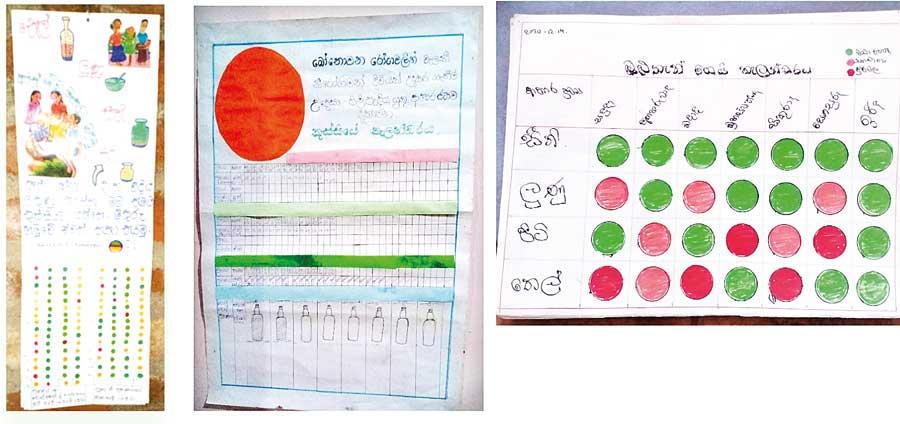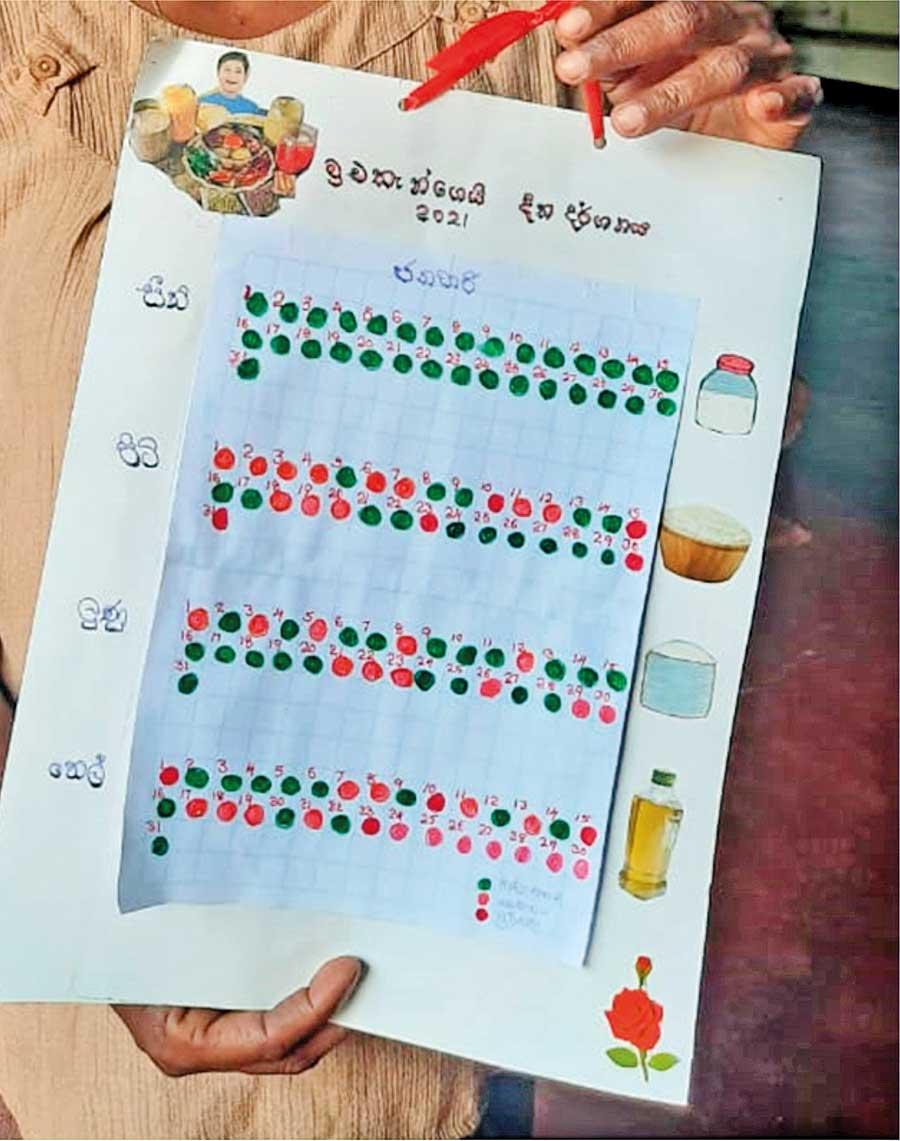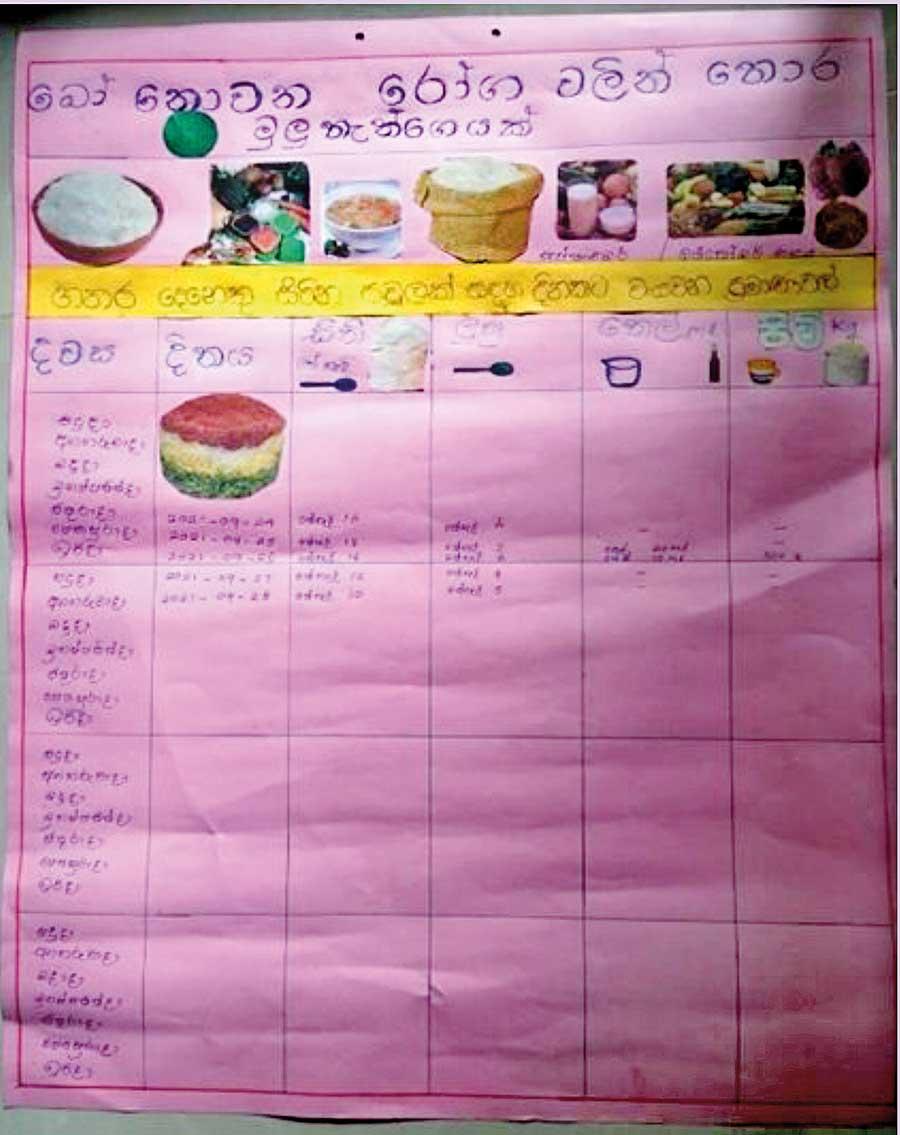Reply To:
Name - Reply Comment
Last Updated : 2024-04-29 17:24:00
The Kitchen Calendar was hailed as the best community action at the World Non-Communicable Diseases Conference

Introducing the ‘kitchen calendar’ – a valuable tool in assessing non-communicable disease (NCD) risks within households. Developed by the Health Promotion Department of Rajarata University, this innovative calendar enables individuals to monitor their daily consumption of salt, sugar, and oil. Through a simple colour-coded system, kitchens are categorized as high-risk, moderate-risk, or no-risk based on adherence to ideal consumption levels.
of Rajarata University, this innovative calendar enables individuals to monitor their daily consumption of salt, sugar, and oil. Through a simple colour-coded system, kitchens are categorized as high-risk, moderate-risk, or no-risk based on adherence to ideal consumption levels.
In a bid to control the growing threat of non-communicable diseases (NCDs), the Health Promotion Department of the Rajarata University has introduced the ‘kitchen calendar’ – a tool to assess the status of a kitchen from its consumption of salt, sugar and oil in meals prepared daily.
The kitchen is said to be the most influential place in the household for the onset of NCDs. People who attended the programme were given an insight into the relationship between food patterns and NCDs and the ideal consumption level of sugar, salt and oil in their meals. In order to assess their consumption a calendar was developed to monitor the daily consumption of the above three components.
“We wanted to develop a simple tool for people to realize the importance of monitoring these three components in their meals,” said Duminda Guruge, Professor in Health Promotion, Department of Health Promotion at Rajarata University. “The calendar indicates three colours; red, yellow and green. Red indicates a high-risk kitchen where the consumption of all three components exceeds the ideal levels, yellow indicates moderate risk where only one or two components are consumed at ideal levels and green indicates no risk which means that all three components are consumed at ideal levels.”
The World Health Organisation recommends only 5 grams of salt in a meal. Therefore, in a family of four the ideal consumption should be 20 grams of salt per day and around 600 grams
|
Prof. Duminda Guruge |
of salt per month. “When we mentioned these figures to the participants many of them realized how much of salt, sugar and oil they have been using in their daily meals,” Prof. Guruge added.
Figures from the research indicate that a majority of families were either in the high-risk (55.4%) or moderate-risk (40.7%) levels prior to the intervention. At the end of the intervention, 298 out of 317 families had been able to reduce the consumption of salt, sugar and oil. In addition, 64.4% of families had a green kitchen at the end of the intervention.
The ‘kitchen calendar’ was adjudged the best community action out of 55 countries at the recently concluded World Non-Communicable Diseases Conference held in Toronto, further recognizing the value of community-based interventions.
“Even though these concepts are accepted and followed globally, Sri Lanka still lags behind in implementing these models,” Prof. Guruge claimed. “As professionals, we should be ready to learn from the community as much as the community learns from us. This is indeed a victory for the community.”
The Health Promotion Department of Rajarata University had conducted various health promotion approaches to minimize the consumption of alcohol and tobacco and reduce the risk of NCDs among various communities. “The success of this programme was such that it quickly disseminated from the family level to the community level. These approaches have been tried and tested and have proven to be successful. But unfortunately, these models are not being executed at a national level. We still follow Western models and harp on outdated concepts. In moving forward, the authorities can look at developing people-friendly tools of this nature to identify, manage and prevent NCD risk factors,” he said in conclusion.
Kitchen calendars developed by the participants



Add comment
Comments will be edited (grammar, spelling and slang) and authorized at the discretion of Daily Mirror online. The website also has the right not to publish selected comments.
Reply To:
Name - Reply Comment
US authorities are currently reviewing the manifest of every cargo aboard MV
On March 26, a couple arriving from Thailand was arrested with 88 live animal
According to villagers from Naula-Moragolla out of 105 families 80 can afford
Is the situation in Sri Lanka so grim that locals harbour hope that they coul

33 minute ago
26 Apr 2024
26 Apr 2024